By Les Tan
Liu Guodong, the man who coached the women’s table tennis team to a silver medal at the recent Beijing Olympics, has rejected the new contract offered to him by the Singapore Table Tennis Association (STTA).
Liu Guodong thinks he should get at least US$9,000 a month and when the STTA offer did not match it, he told a local newspaper:
“They told me to take it or leave it. I refuse to be bullied by this kind of attitude any more. What they have put on the table is simply insulting and insincere. They are forcing me to leave.”
For him to say, in these economic times, that $9,000 a month is insulting, is…insulting. He then contradicts himself: “Money is not the most important thing to me. What is more important is that I get the recognition that is due to me.”
So it’s not about money, but anything less than US$9,000 a month is insulting. Which is it?
We shouldn’t be surprised that this would happen. After all, the national table tennis team is essentially set up like a professional sports team. Hire the best coach and players money can buy except for the best ones China hangs on to, bump them up the citizenship queue, and hope for the best. In this case, the team won an Olympic silver medal.
After the Olympic flame was extinguished, the capitalist flame gets lit. In Liu’s case, it’s a raging inferno. Having used Singapore, Liu Guodong now has a larger market for his services and he is selling his services to the highest bidder. It’s time to cash in.
The old International Table Tennis Federation (ITTF) rules regarding player eligibility is the source of Singapore’s problems. The rules were so liberal that Chinese players who couldn’t make it to their own national team would show up playing for another country.
The recent Beijing Olympics saw China-born players take up 25% of all playing slots under different country flags. The ITTF, realising this was all becoming a bit of a joke with Chinese players representing Congo, the Dominican Republic and Austria, among other countries, tightened the rules.
From September 1st, 2008, players aged over 21 years old cannot play for their new country at World Championships and World Cups. In other words, Feng Tianwei, 22 years old this year, and who received her citizenship only in January 2008, would not have been eligible to play for Singapore if those rules were in place just a year earlier.
The table tennis players bring up a mixed bag of emotions. While they are technically flying the Singapore flag, they have not assimilated. Hence, some segment of Singaporean society just find it difficult to embrace them. For some of us, we can’t even talk to them because of language barriers.
To top it off, the players get monetary awards from public coffers and meritorious awards from the president on behalf of society. It doesn’t sit well because in some minds they are seen as just professional players who are here to do a job, and when they are done, they leave, as in the case of Li Jiawei who is reportedly making plans to return to Beijing to marry and study.
At the Beijing Olympics homecoming celebration, Liu Guodong had said:
“I have been working in Singapore for two years and eight months, and in my time here my affinity for the country has deepened. I came from China and Singapore gave me the platform whereby I could help the table tennis team to a silver medal, and for that I am truly grateful to Singapore.”
It is unfortunate his gratefulness doesn’t seem to allow him to take less than US$9,000 a month.

Liu Guodong (left) at the Beijing Olympics homecoming ceremony earlier this year. He’ll soon be sporting a different flag over his heart for a lot more money. (Photo ©Ã‚ Les Tan/Red Sports)
REDpoll
Related story:
So what’s next for Singapore table tennis after Olympic success?

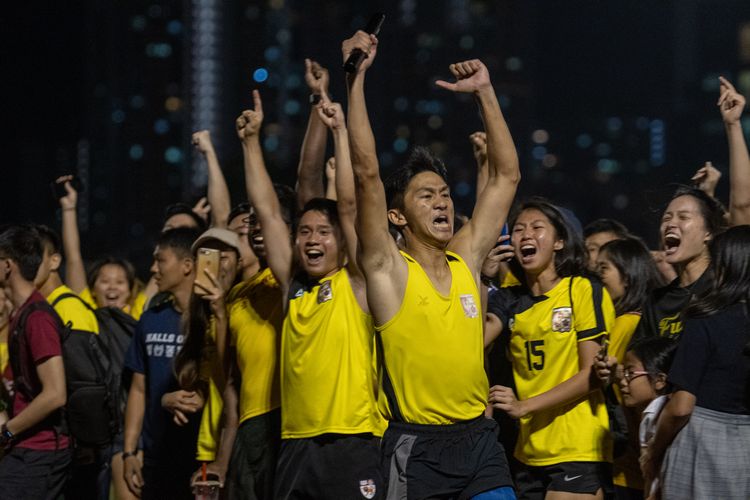
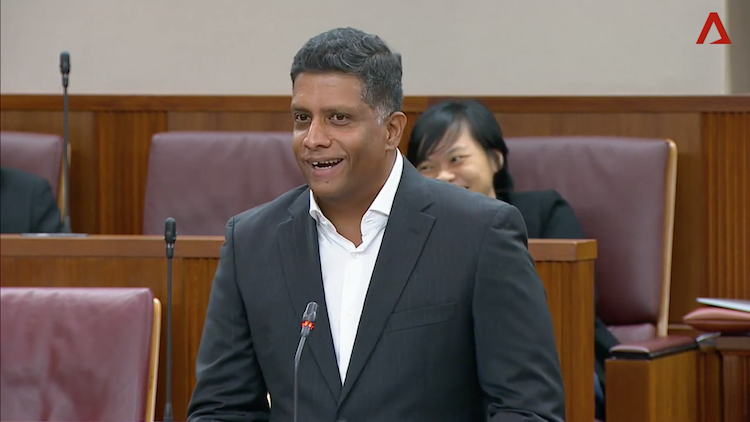
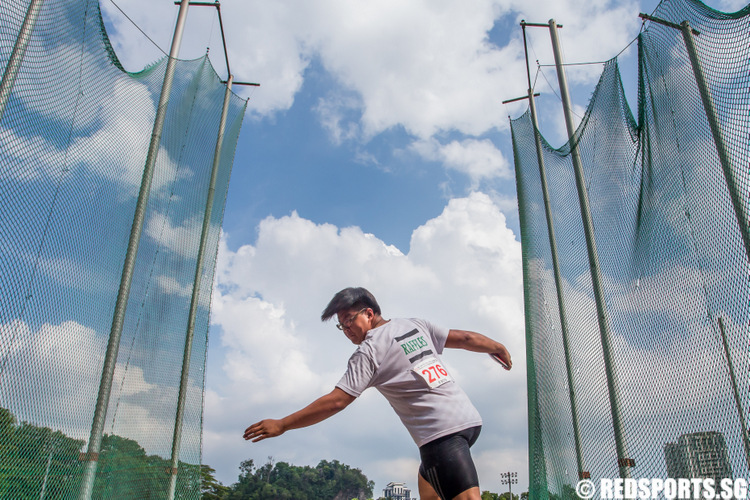
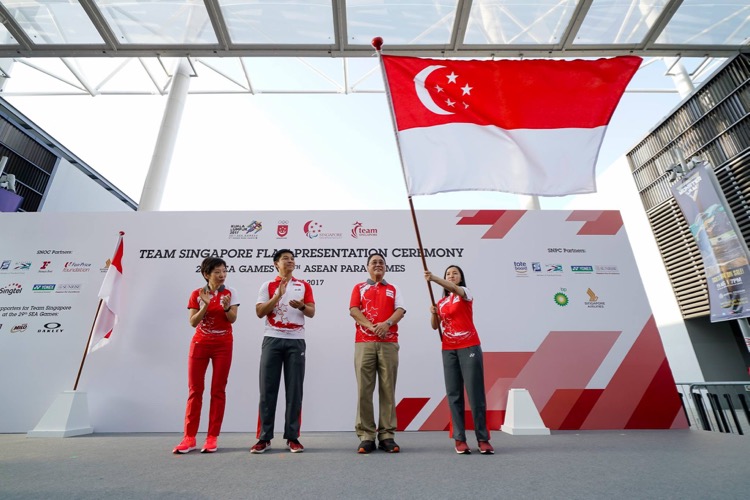
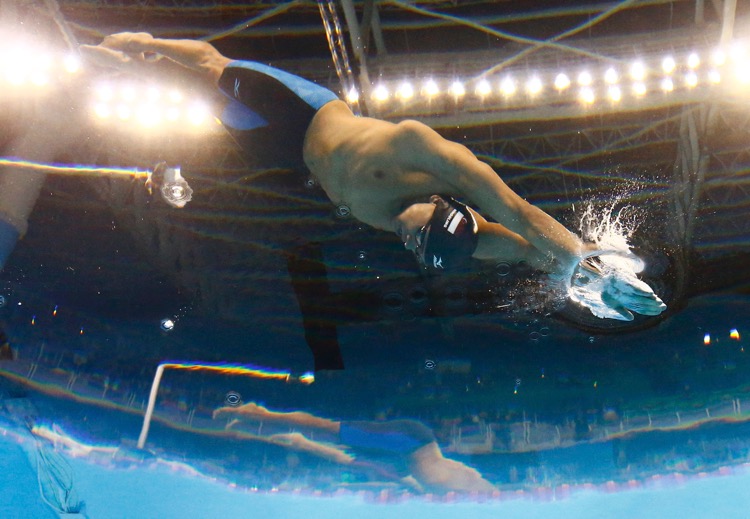

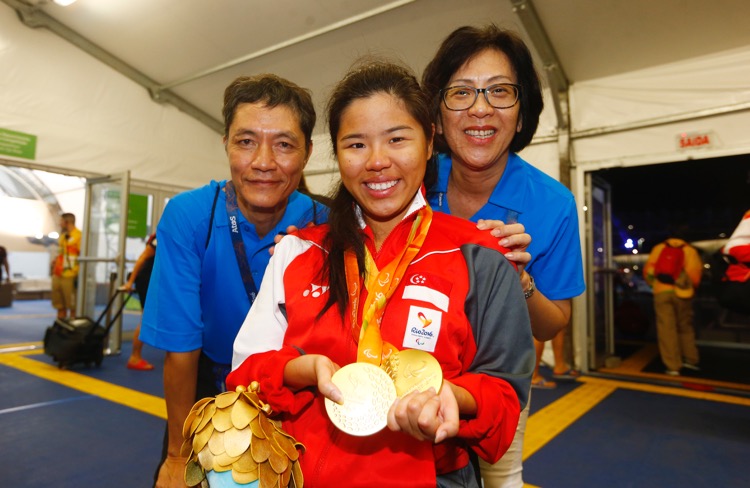

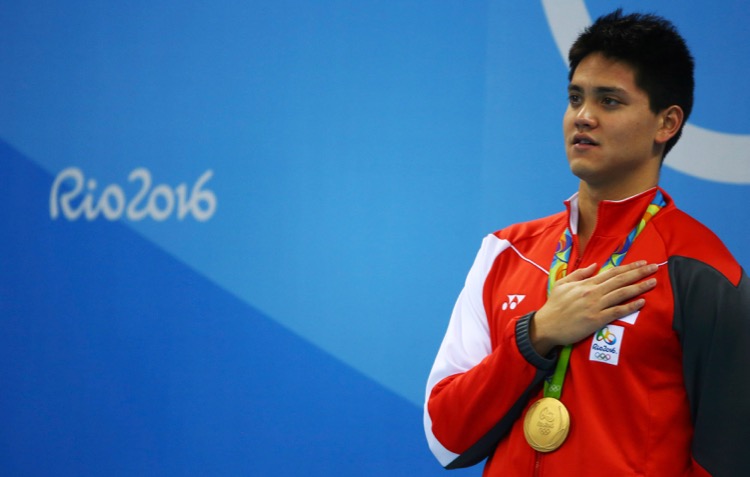

Lee Beew Wah SCREWED UP BIG TIME
I don’t care what is written and who is right or wrong.
If you want a MEDAL in the Olympics, pay what THE TEAM deserves.
If you don’t have the money, then, forget your MEDAL DREAMS.
Davidlim5
He is worth that money since he has lead the team to a medal which Singapore has been dreaming of.
Just a note, the $9000 a month salary he was asking for is in US dollars. I’ve made the changes to the story above.
You are quite right, Jonathan. A coach has every right to be paid what the market can bear. No question.
It would have been a lot more advisable for Liu to have kept his comments about the salary to himself regardless of how he felt. He doesn’t have to accept it, but calling it “insulting” isn’t necessary. If he had said that he got a better offer somewhere else, that’s fine. Everyone would accept that.
A top coach is worth the fee he asks for. After all, there are only 6 (men/women) medals to win in a sport. 9000 is CHEAP for a world class coach. SSC spends much more than that on equipment (high speed cameras, 3d motion stuff etc) that is 1/4 to 1/2 million dollars… I am 100% sure that the benefit of a top coach is more beneficial than any of these pieces of equipment. I’m all for paying the top guys what they are worth (within reason…) and 9000/month is well within reason. I recently went to a seminar by the world’s top strength and conditioning specialist. He charges $30,000USD per week. And he’s worth every penny.
I like this article. Well said about how we cant embrace those china born players. Anyway to put this on local newspapers?
Well all I can say about this issue is , you pay for what you get. Since the STTA refused to pay his price tag, well go look for another top coach who is willing to work for what they are offering.
has this been the case throughout Singapore, and not just in this context? take for example McDonalds, a firm that exists throughout the globe, how is it that locals working in the company is paid significantly lower than those in other nations?
the governments strict pragmatic policies perhaps? now that it has translated into a problem in Singapore, perhaps, it’s a policy that requires modification?
(sorry for being incoherent if i am, JC studying is no fun)
Jan, well-said. I know it’s not a comfortable subject, especially in a season like now when regular people are losing their life savings due to the excesses of the highly-paid. But if there is a market value that can be estimated, and the STTA pitched too low, then it’s not surprising he would feel insulted.
If the increase from USD4000 to USD5600 is adjusted after he took Singapore to the Commonwealth 2006 Gold, SEA Games 2007 Gold, World Championships silver, Olympic 2008 silver (and the only glitch over his past 2 years 8 months was the lack of an Asian Games medal) and has built a sustainable squad for the nation, then I’m not sure whether USD5600 per month is a reasonable or true reflection of the market value of Liu.
Even if it is only adjusted based on the Olympic Games, in the sporting world, if we consider the Olympic medal the highest sporting honour and a benchmark of excellence, then by bringing Singapore from 0 (no medal) to 100 (got medal), I don’t think a less than 50% pay increase is a good reflection of his current market value? I’m not sure whether questions of citizenship can be implicated because in most sports, it is the norm to have coaches crossing borders.
I guess after his achievements in Singapore, Liu is now considered the world #2 coach in this sport. And when the world #1 coach aka his brother is believed to be pricetagged at close to half a million US per annum (including endorsements and assets I believe, I read about it in Forbes) but Liu is now tagged only a small fraction of that (when their achievements are just but one medal colour difference), then I can understand the ‘insult’.
Even if Liu does not compare with his brother, he should know better that being a sports personnel in Singapore is incomparable to one in China, but looking next door at our neighbour across the causeway, an Olympic medal pay package has come along with a DATUKSHIP and life time pension of about RM 3K a month on top of the current monthly salary to reflect their worth. So I can understand why Liu felt insulted by how Singapore has deemed his worth/value in the sporting market.
Ungrateful
be realistic, want top talent, you need to pay premium price. dont think $9k for a top tier coach is a lot.
be realistic, this is a free market…want top talent, you need to pay premium price. dont think $9k for a top tier coach is a lot.
I feel that he is quite hypocritical in a sense. I believe he didn’t come to Singapore in the first place just to do a good job and receive his due ‘recognition’. Maybe he was just aiming to raise his stock here and look for greener pastures elsewhere. But I think that if it wasn’t for an attractive job offer by STTA, he wouldn’t even bother about Singapore.
I read a report that he’s getting USD 4,000 and he was offered USD1,600 more.
I don’t want to be mean but personally I am not surprised. After all, he is a man who left his own home country that he has grew up in for DECADES to go to a rival country and coach.
If he doesn’t even feel something for a country that he has grew up in, we shouldn’t be surprised that he doesn’t feel for Singapore (which he spent 2 years and 8 months in) either.
Its evident that he is here for the fame and money. And once we can no longer afford to provide him that, he leaves.
Does anyone know what ballpark his salary was in up until now?
Putting aside questions of citizenship and the talent market (a tall order, I realise), if he was being paid say $10,000 before, and is now being offered $9000 non-negotiable, I think it’s not unreasonable that he should feel insulted….